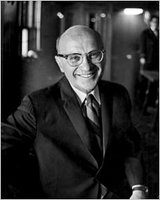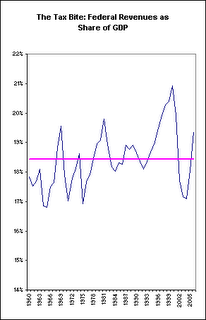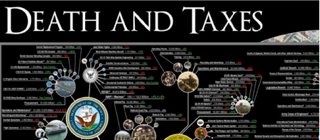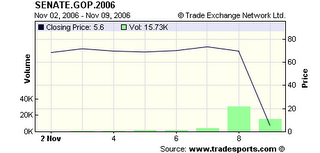Will San Diego Ban Wal Mart?
SAN DIEGO - The City Council here voted late Tuesday to ban certain giant retail stores, dealing a blow to Wal-Mart Stores Inc.'s potential to expand in the nation's eighth-largest city.
The measure, approved on a 5-3 vote, prohibits stores of more than 90,000 square feet that use 10 percent of space to sell groceries and other merchandise that is not subject to sales tax. It takes aim at Wal-Mart Supercenter stores, which average 185,000 square feet and sell groceries.
So what's the problem with Wal-Mart and similar stores? I'm not a big Wal-Mart fan, but that's mainly because I prefer shopping at Target (I'll happily accept endorcement offers).
Banning Wal-Mart (The San Diego Union-Tribune):
One of local governments' primary responsibilities is land use and setting standards for development within the city. After more than three years of review by the Planning Commission and the City Council's Land Use and Housing Committee, the city's planners have concluded that superstores would provide no economic benefit to the city and would result in the closure of locally owned stores and increased costs to the city in the form of street repairs, police and fire services and other city services required by mega-sized stores....
The proposal's limits would only affect the potential introduction of stores that can be over 250,000 square feet. These stores have traditionally been developed in rural areas of the South and Midwest where land is more available and traffic is less congested. The introduction of these superstores in suburban and urban settings creates so much traffic, smog and economic blight that several cities in California, including Long Beach and Los Angeles, have already passed limits on their development.
So what's really different about these stores? The combination of groceries and retail into one store allows that company to sell groceries as a loss leader, meaning that they artificially price them below market prices to attract buyers into the store, and then they make their profits on the cheap, foreign-made items with markups of more than 500 percent. And because groceries create the most traffic per square foot of any store, these superstores draw more traffic than any other combination of goods anywhere....
So what's really different about these stores? The combination of groceries and retail into one store allows that company to sell groceries as a loss leader, meaning that they artificially price them below market prices to attract buyers into the store, and then they make their profits on the cheap, foreign-made items with markups of more than 500 percent. And because groceries create the most traffic per square foot of any store, these superstores draw more traffic than any other combination of goods anywhere.
So if congestion and car pollution is the problem, why not address that with policies that specifically "target" reducing congestion and pollution such as improving public transportation or considering the use of peak-time tolls?
No. Move would cost residents the chance to save money. (The San Diego Union-Tribune)
Banning Wal-Mart Supercenters from San Diego could cost residents the chance to save as much as $2,300 per year on their grocery bills, according to independent economic studies....
The ordinance was originally proposed in 2003 by the Joint Labor Management Committee, which is comprised of labor unions, large grocery chains and other businesses. Although they are in bed together now, unions and grocery stores recently faced off during a prolonged strike.
As these folks are behind the genesis of the anti-Supercenter effort, it stands to reason they hope to gain by it. Unions would block the presence of a nonunion employer, no matter that Wal-Mart Supercenters would bring hundreds of well-paying, highly sought-after jobs to the city. And the grocery stores, what could they possibly get out of it? Why, they could dodge the bullet of having a major competitor set up shop in San Diego.
[AF]





